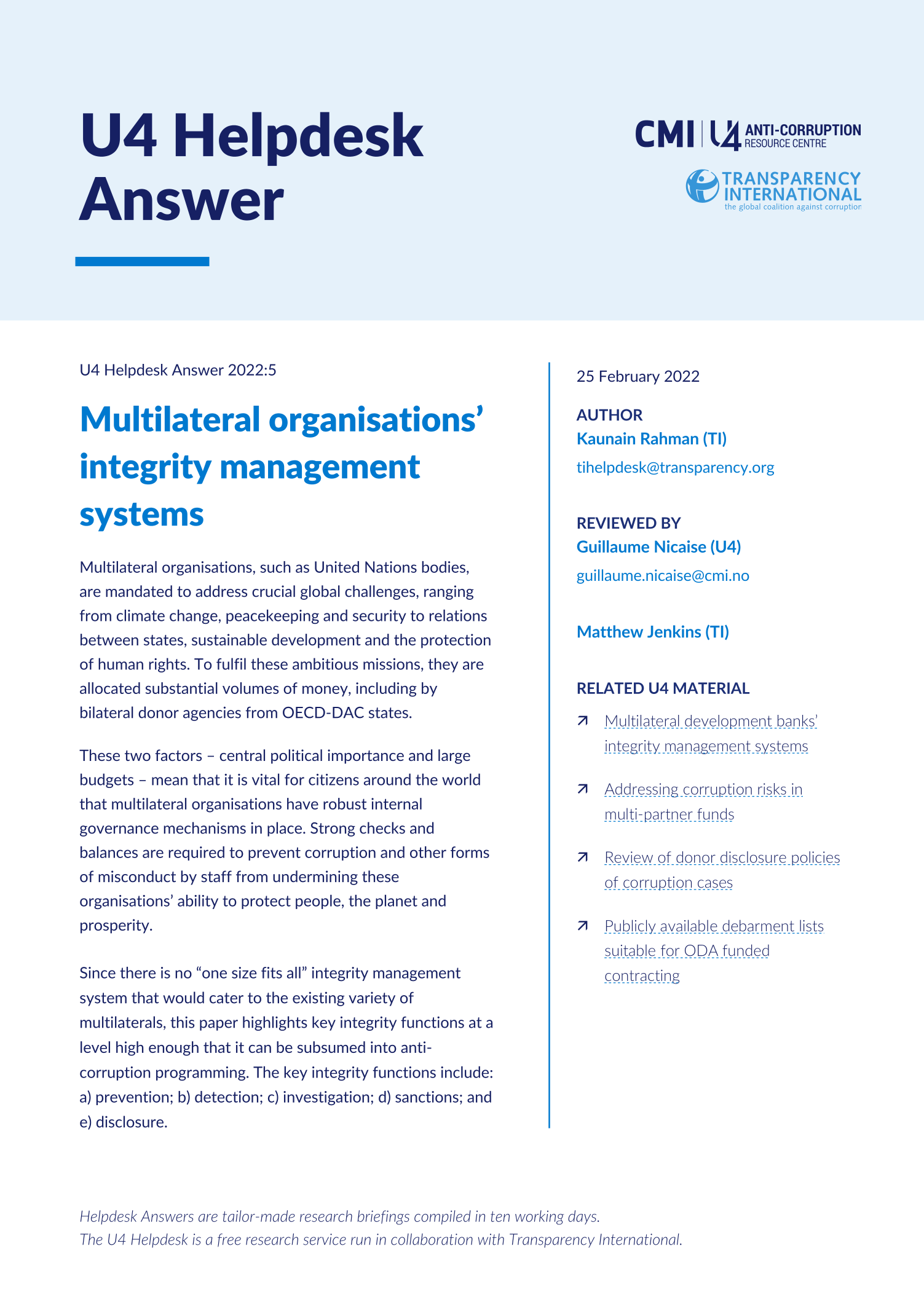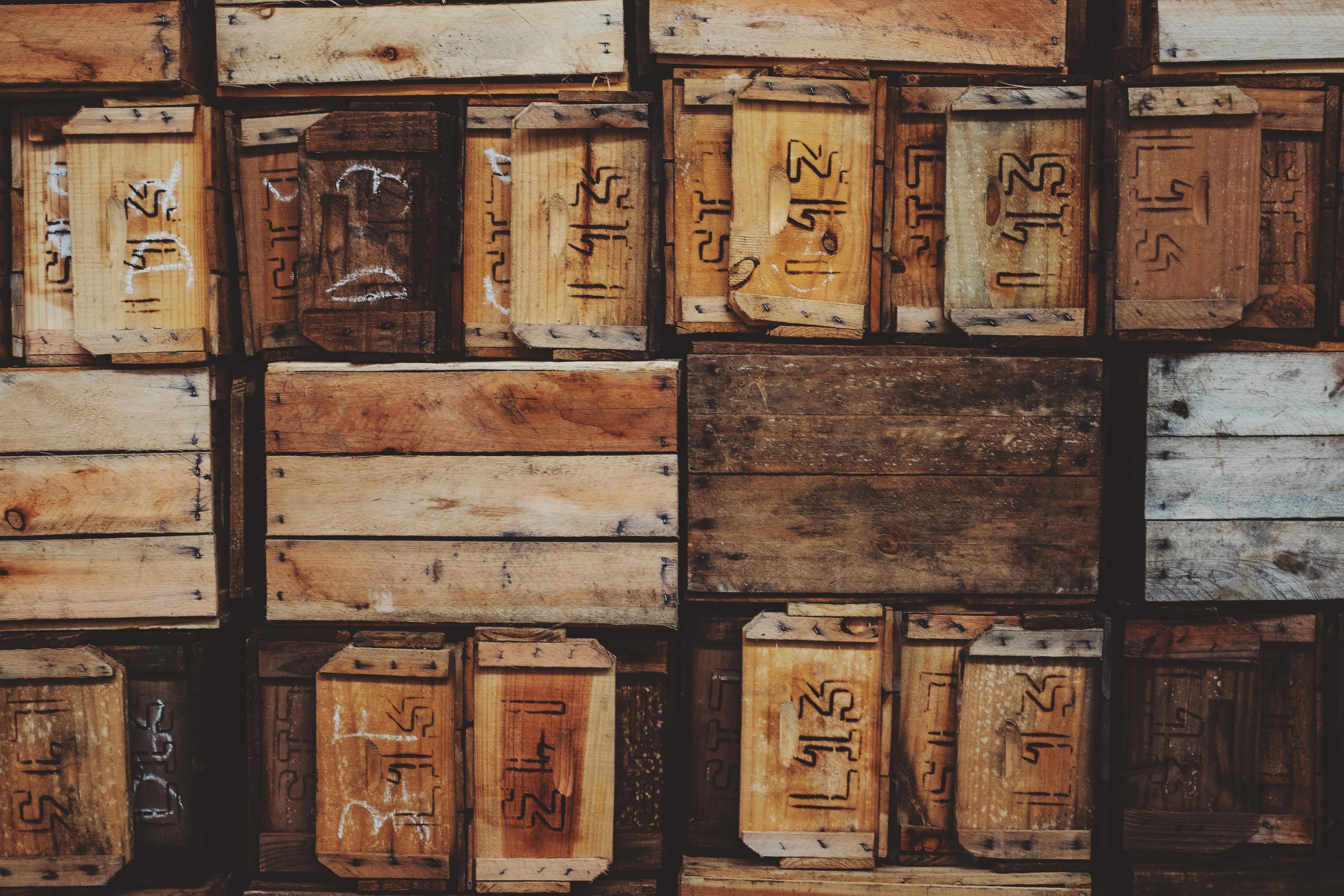Main points
- There is no “one size fits all” system that would cater to the existing range of multilaterals with differing institutional, strategic and operational realities. There are, however, key functions that should be a feature of each multilateral organisation’s integrity framework.
- Prevention: including ex-ante PEA analysis, risk management, due diligence, operational guidelines on anti-corruption and so on.
- Detection: including whistleblower protection, monitoring.
- Investigation: including internal and external audits.
- Sanctions: including debarment.
- Disclosure: including of cases of corruption and outcome of internal investigations.



